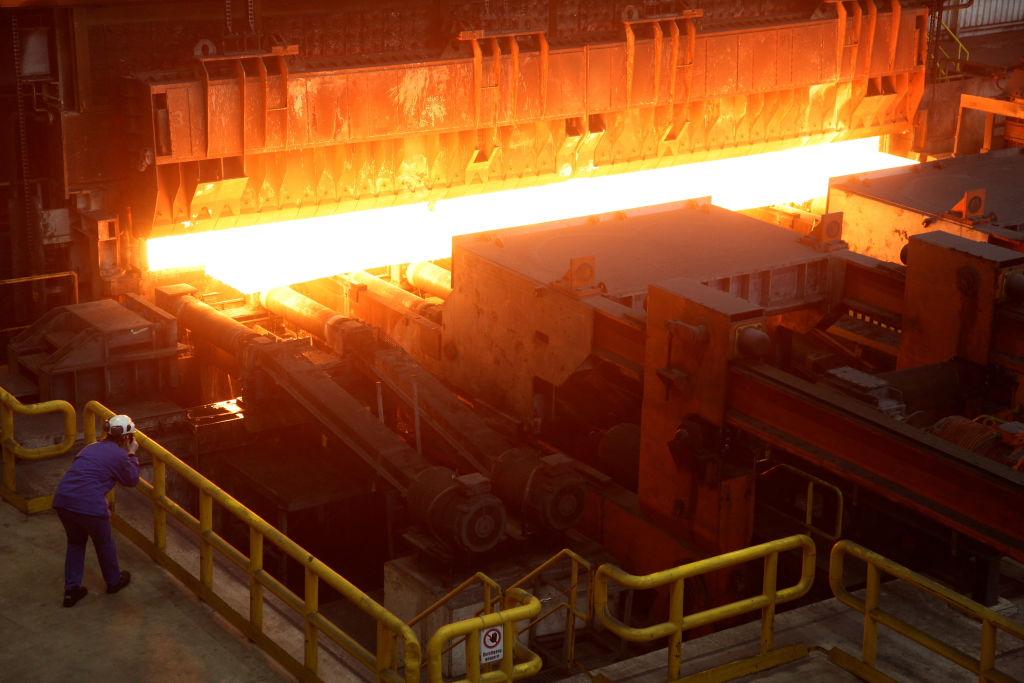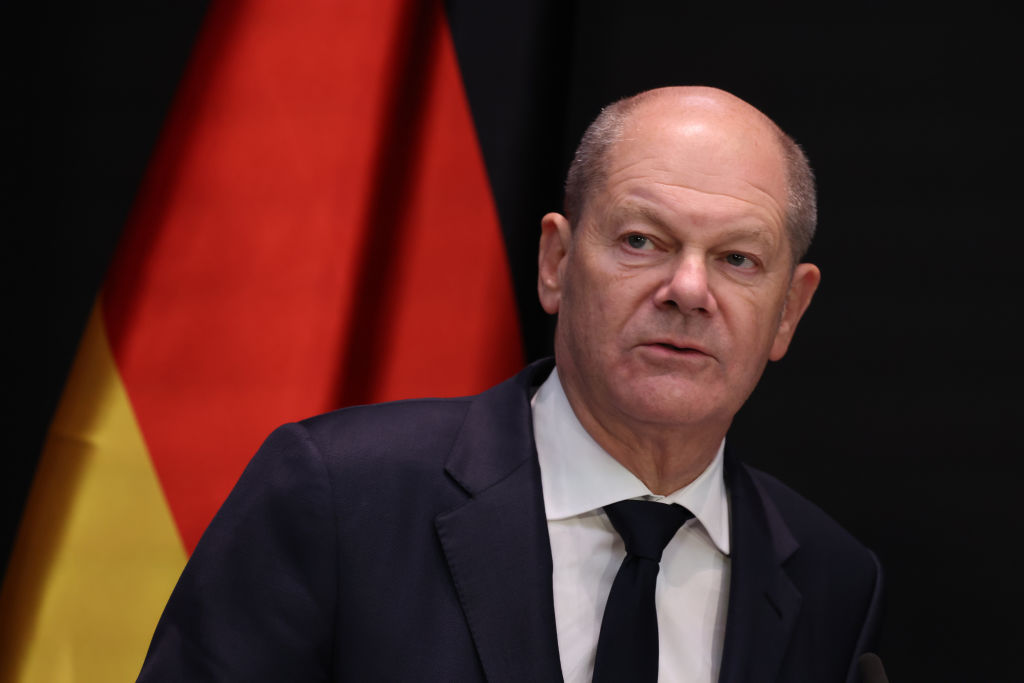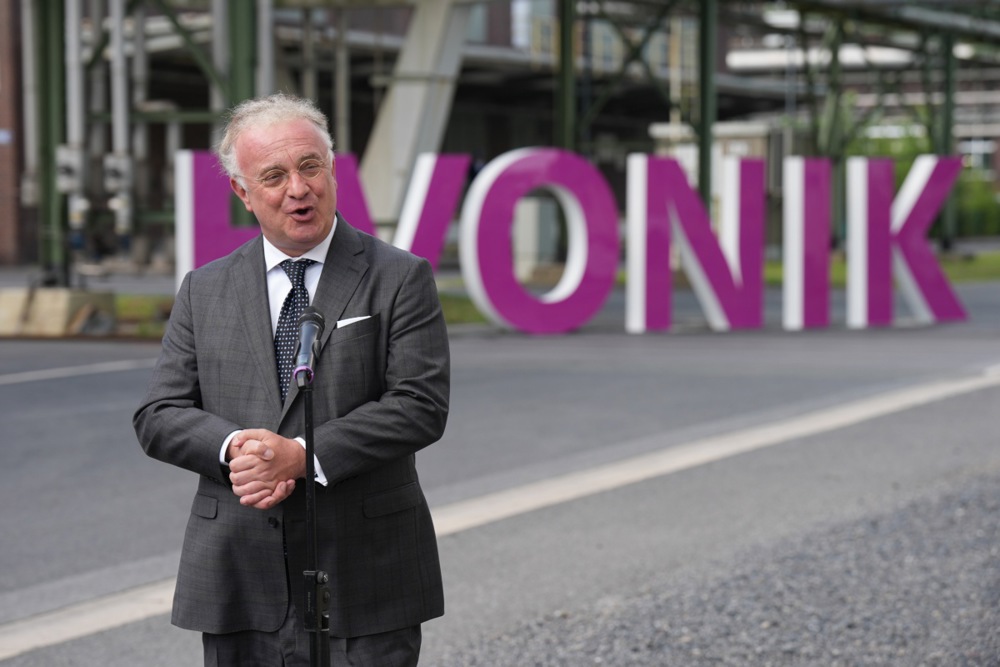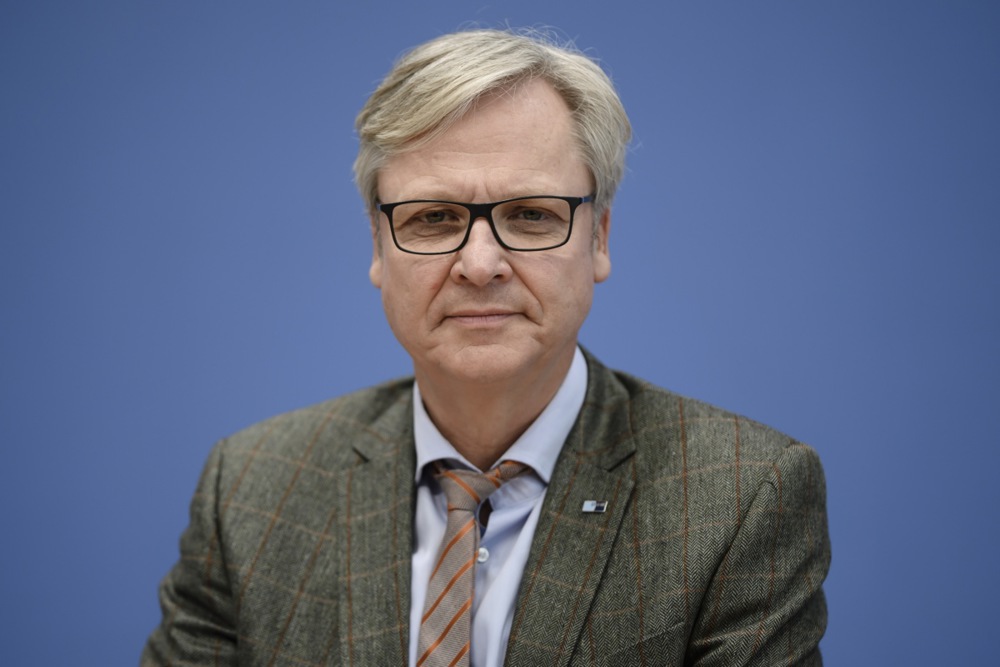German steel major Thyssenkrupp released disappointing quarterly results May 15 on the foot of weak European steel demand.
The company’s adjusted operating profit was only €19 million, down from the €184 million it had forecast for the quarter.
Together with softening demand and macroeconomic insecurity, the company faced higher costs due to such politically-imposed ‘green’ goals as increasing its hydrogen-based steel production.
Energy costs also continued to be high, as a result of Russia’s invasion of Ukraine.
Lower prices and demand for steel, as well as maintenance-related shutdowns and trade tariffs, had all negatively impacted profits, the company said.
The company’s order intakes for the quarter stood at €8.1 billion, compared to €8.6 billion a year earlier, and sales fell from €9.1 to €8.6 billion.
Thyssenkrupp still ended the quarter with a net profit of €155 million—markedly better than the €78 million loss it recorded in the same period last year.
However, this result was largely driven by a one-off: the sale of its Electrical Steel India business unit.
In October 2024, Thyssenkrupp sold this division for €440 million to a consortium of Thyssenkrupp Electrical Steel India Private Ltd., JSW Steel Limited, and JFE Steel Corporation.
Despite his company’s darkening balance sheet, CEO Miguel López kept a steely tone.
“We are making good progress with the portfolio. The preparations for a standalone solution for the marine business are advancing at pace. Steel Europe is working resolutely on the planned restructuring of the business. We are consistently implementing the measures of our APEX performance program in all segments”, he said.
While the company expected its market environment to remain challenging, it anticipated things would improve slightly in the second half of the year.
“By contrast, the persistently difficult market environment is reflected in our operational figures for the second quarter. In the second half of the year, we are expecting a more stable market environment and positive effects from the measures we have initiated. We therefore confirm our full-year forecast,” López said.
The company expected its steel sales to remain stable or decline by up to 3 per cent, with adjusted operating profit still projected between €600 million and €1 billion.
Thyssenkrupp said the low group sales were caused by weaker demand in the automotive technology, materials services and steel Europe segments and lower prices at materials services and steel Europe.
The company wanted to trim costs in its automotive technology department by over €150 million, through cutting 1,800 jobs and restructuring the business.
The company’s capacity was significantly reduced after it shut down plants in its European steel division for conversion.
Thyssenkrupp was working hard on programmes to boost productivity and reduce costs.
“However, this may still be insufficient to offset the impact of the currently weak materials markets,” said analyst Christian Obst of Baader Helvea in a client report, according to ABM Financial News.
Luxembourg-based multinational steel manufacturer ArcelorMittal said it was delaying big investment programmes in Europe, citing uncertainties over European Union regulatory directives. https://t.co/hI8SeqR9V6
— Brussels Signal (@brusselssignal) November 26, 2024
A particular challenge for the steel division was a mandatory transformation towards climate-friendly steel production, dictated by the EU Green Deal.
This has pushed away coal-powered blast furnace production in favour of other, more expensive, less mature technologies.
So-called direct reduction plants (DRI) were to replace conventional blast furnaces.
Thyssenkrupp was currently pushing ahead with building such a plant at its Duisburg site, but costs of so doing amounted to several billion euros, German news outlet Apollo News reported.
Proponents claim using so-called green hydrogen could theoretically reduce CO₂ emissions by more than 90 per cent compared to conventional blast furnaces.
The European Union has unrealistic goals for renewable hydrogen energy, despite close to €20 billion in funding, the EU’s financial watchdog has said. https://t.co/X6L96XfPTW
— Brussels Signal (@brusselssignal) July 17, 2024





